Latest
2024
Dec
Nov
Oct
Sep
Aug
Jul
Jun
May
Apr
Mar
Feb
Jan
2023
Dec
Nov
Oct
Sep
Aug
Jul
Jun
May
Apr
Mar
Feb
Jan
2022
Dec
Nov
Oct
Sep
Aug
Jul
Jun
May
Apr
Mar
Feb
Jan
2021
Dec
Nov
Oct
Sep
Aug
Jul
Jun
May
Apr
Mar
Feb
Jan
2020
Dec
Nov
Oct
Sep
Aug
Jul
Jun
May
Apr
Mar
Feb
Jan
2019
Dec
Nov
Oct
Sep
Aug
Jul
Jun
May
Apr
Mar
Feb
Jan
2018
Dec
Nov
Oct
Sep
Aug
Jul
Jun
May
Apr
Mar
Feb
Jan
2017
Dec
Nov
Oct
Sep
Aug
Jul
Jun
May
Apr
Mar
Feb
Jan
2016
Dec
Nov
Oct
Sep
Aug
Jul
Jun
May
Apr
Mar
Feb
Jan
2015
Dec
Nov
Oct
Sep
Aug
Jul
Jun
May
Apr
Mar
Feb
Jan
2014
Dec
Nov
Oct
Sep
Aug
Jul
Jun
May
Apr
Mar
Feb
Jan
2013
Dec
Nov
Oct
Sep
Aug
Jul
Jun
May
Apr
Mar
Feb
Jan
2012
Dec
Nov
Oct
Sep
Aug
Jul
Jun
May
Apr
Mar
Feb
Jan
2011
Dec
Nov
Oct
Sep
Aug
Jul
Jun
May
Apr
Mar
Feb
Jan
2010
Dec
Nov
Oct
Sep
Aug
Jul
Jun
May
Apr
Mar
Feb
Jan
2009
Dec
Nov
Oct
Sep
Aug
Jul
Jun
May
Apr
Mar
Feb
Jan
2008
Dec
Nov
Oct
Sep
Aug
Jul
Jun
May
Apr
Mar
Feb
Jan
2007
Dec
Nov
Oct
Sep
Aug
Jul
Jun
May
Apr
Mar
Feb
Jan
2006
Dec
Nov
Oct
Sep
Aug
Jul
Jun
May
Apr
Mar
Feb
Jan
2005
Dec
Nov
Oct
Sep
Aug
Jul
Jun
May
Apr
Mar
Feb
Jan
2004
Dec
Nov
Oct
Sep
Aug
Jul
Jun
May
Apr
Mar
Feb
Jan
2003
Dec
Nov
Oct
Sep
Aug
Jul
Jun
May
Apr
Mar
Feb
Jan
2002
Dec
Nov
Oct
Sep
Aug
Jul
Jun
May
Apr
Mar
Feb
Jan
2001
Dec
Oct
Sep
Aug
Jul
Jun
May
Apr
Mar
Feb
Monday, November 29, 2021
Music Week
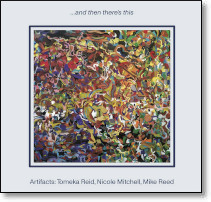 |
 |
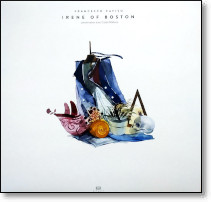 |
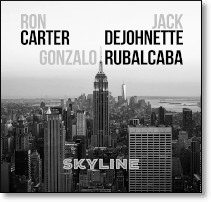 |
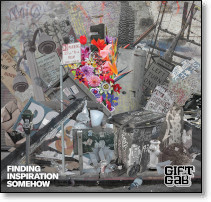 |
 |
 |
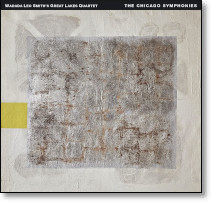 |
 |
Expanded blog post, November archive (finished).
Tweet: Music Week: 51 albums, 9 A-list, all new music this time, lots of titles (especially jazz) that had slipped past me during the year, but are finally popping up on EOY lists; further notes on inflation, price-gouging, and James Ridgeway.
Music: Current count 36797 [36746] rated (+51), 125 [130] unrated (-5).
I'll keep this short, as I have a lot of other work to do, and need to get back to it. All new music this week. Mostly jazz. I have an advantage over the rest of you (except for Francis Davis) in that I'm reading Jazz Critics Poll ballots before they're posted. Six (of 7) new A- jazz albums were unknown to me before last week (although I must have received mail, perhaps even a download link, from Astral Spirits about Artifacts). The one non-jazz A-lister (note: full A) didn't come from an EOY list (yet), but I noticed it while searching AOTY for high-rated 2021 releases (this one from HipHopDX; very little hip-hop in the first wave of EOY lists). The other A- was an upgrade, after endorsements from Phil Overeem and Chris Monsen convinced me to give it another spin.
Seems like every JCP ballot I receive has 2-4 new albums, mostly ones I wasn't even aware of. Most disturbing was that early in the counting, 6 of the top 10 albums were things I hadn't heard. Most of those have proven impossible to stream, but the final number will probably drop anyway (4 at the moment, some I'll catch up with, most because other voters won't have heard them either, so they'll sink). One thing polls always wind up silently measuring is how effective publicists are, and how lack of a publicist keeps artists mired in obscurity.
November had five Mondays, so the monthly archive (link above) is exceptionally huge. I haven't done the indexing, so don't even have a count. (Well, subtracting Music Week count lines give us +257, with -24 unrated.) Pending count for 2021 promos is down to 6 (3 of which are Christmas music, and 1 was a 2018 release; I'll get to the Gordon Grdina albums later today). Mail didn't bring anything this week. I've started to get 2022 promos, but only 2 so far.
Some statistics: according to tracking file (of 2021 releases: 925 records rated (69.8% streamed), 2704 records logged. Metacritic file logs 2064 albums, plus 163 reissues/vault music. Current Best Jazz list has 53 new A-list, 25 reissues/archival A-list. Current Best Non-Jazz list has 46 new A-list, 5 reissues/archival A-list.
I published a Speaking of Which last week. I had a long Facebook comment that I thought could use wider and more lasting presentation. I also wanted to jump off the Paul Krugman links to talk about inflation. I got my main point in, but could have written much more. I don't feel up to adding more right now, but it's worth emphasizing that from the 1970s the right harped on the evils of inflation, and used it as an excuse to destroy the labor movement, impose austerity on government, and fuel the extreme financialization of the economy. Some people, like the Populists in the 1890s, drew the wrong conclusion, and tried to argue that more inflation would be a good thing. They were defeated so severely that no one argues that anymore, but it's always been the case that inflation has both winners and losers. Good policy attempts to balance this, protecting losers against their losses while limiting the windfalls to the winners. There are better ways to do this now than working through the Fed, which is designed to help bankers -- winners both when rates go up (they collect more interest, especially from variable-rate debtors) and when they go down (they get more money for speculation and leverage, inflating the stock market).
A big part of recent "inflation" (I think "price gouging" is a more accurate term) involves gasoline prices, and this has caused some sort of nervous breakdown in the Biden administration. It would help if the media had a bit of historial perspective. Current prices, for instance, are still lower than they were under GW Bush, at least until he cratered the economy in 2008. One big reason prices rose so much under Bush was disruption of supplies due to war and sanctions. If Biden wanted to cut oil prices, the easiest way would be to allow Iranian and Venezuelan oil back on the world market (which would be good as a break from the American conceit that claims the write to punish other countries for not liking American interference, but bad in that lower prices would encourage people to waste oil and further damage the environment we all depend on). The main effect of Trump's belligerency was to prop up oil prices, but Republicans never seem to get blamed for gas prices (or much else -- benefits of owning the media blame machine).
I've been saying for some time that we need higher oil taxes. Europe has long had hefty taxes on gasoline, initially to maintain a favorable balance of trade by suppressing imports. The result was that as early as the 1950s European cars were much more efficient than American cars. US oil production peaked in 1969, and in 1970 imported oil tipped the US into a losing trade balance which has only increased ever since. A smart move then would have been to increase taxes, to make people and (especially) businesses more conscious of the need to conserve, but we didn't do that. (Instead, they came up with the 55 mph speed limit. The immediate effect was for American auto engineering to atrophy, a reputation Detroit has strugged with ever since.) In the 1980s, when a lot of non-OPEC oil came online, Americans started buying gas guzzlers again, and now we're stuck with all these SUVs and heavy pickups -- not all driven by Trumpist blowhards, but there is a real skew in that direction. And, of course, they're up in arms: High gas prices are hitting heavy-duty pickup owners hard. I'm not unsympathetic, but in the long run we'd be better off pricing those machines off the road. If their lifetimes average 15 years, why not pass a series of gas tax bumps scheduled to kick in over 20 years, with a diminishing set of partial rebates? After all, good policy makes amends for those who face consequent losses. On the other hand, if you can't face such losses, you can't make progress at all. Biden's short-term moves to cut gas prices cast doubts on his commitment to slowing down climate change, and you don't have to have a very long term view to see that as mattering more.
One last note here. I mentioned the death of Dan Georgakas, but after I posted another valuable writer passed away: James Ridgeway. He did important work, especially on corporations and energy resources, like The Politics of Ecology (1970), The Last Play: The Struggle to Monopolize the World's Energy Resources (1973), Who Owns the Earth (1980), and It's All for Sale: The Control of Global Resources (2004).
New records reviewed this week:
- ABBA: Voyage (2021, Polar): [r]: B-
- Android Trio: Other Worlds (2021, Cuneiform): [dl]: C+
- Artifacts [Tomeka Reid/Nicole Mitchell/Mike Reed]: . . . And Then There's This (2021, Astral Spirits): [r]: A-
- Balimaya Project: Wolo So (2020 [2021], Jazz Re:Freshed): [bc]: A-
- Blu: The Color Blu(e) (2021, Nature Sounds): [r]: B+(*)
- The Brkn Record: The Architecture of Oppression Part 1 (2021, Mr. Bongo): [bc]: B+(***)
- Francesco Cafiso: Irene of Boston: Conversation Avec Corto Maltese (2020, Eflat): [r]: A-
- Brandi Carlile: In These Silent Days (2021, Low Country Sound/Elektra): [r]: B
- Ron Carter/Jack DeJohnette/Gonzalo Rubalcaba: Skyline (2021, 5 Passion): [r]: A-
- Anat Cohen & Marcello Gonçalves: Reconvexo (2021, Anzic): [bc]: B+(*)
- Isaiah Collier & the Chosen Few: Cosmic Transitions (2020 [2021], Division 81): [r]: B+(***)
- Eliane Elias: Mirror Mirror (2021, Candid): [r]: B+(***)
- Flukten: Velkommen Hap (2021, Odin): [r]: B+(***)
- Erik Friedlander: Sentinel (2020, Skipstone): [r]: B+(**)
- Rob Frye: Chihuahuan Desert Birdscapes (2020 [2021], Astral Spirits): [bc]: B
- Nubya Garcia: Source We Move + We Move (2021, Concord Jazz): [r]: B
- Gerry Gibbs Thrasher Dream Trios: Songs From My Father (2021, Whaling City Sound, 2CD): [r]: B+(**)
- Gift of Gab: Finding Inspiration Somehow (2021, Nature Sounds): [r]: A
- Carlos Henriquez: The South Bronx Story (2021, Tiger Turn): [r]: B+(***)
- Arushi Jain: Under the Lilac Sky (2021, Leaving): [r]: B+(***)
- Malcolm Jiyane Tree-O: Umdali (2018 [2021], Mushroom Hour Half Hour): [r]: A-
- Samara Joy: Samara Joy (2020 [2021], Whirlwind): [r]: B+(***)
- Jacqueline Kerrod: 17 Days in December (2021, Orenda): [cd]: B+(**) [12-03]
- Stefano Leonardi/Antonio Bertoni: Viandes (2018 [2021], Astral Spirits): [dl]: B+(*)
- Myele Manzanza: Crisis & Opportunity, Vol. 1: London (2021, DeepMatter): [bc]: B+(***)
- Myele Manzanza: Crisis & Opportunity, Vol 2: Peaks (2021, DeepMatter): [bc]: B+(*)
- Hedvig Mollestad: Tempest Revisited (2021, Rune Grammofon): [r]: B+(*)
- Camila Nebbia Quartet: Corre El Río De La Memoría Sobre La Tierra Que Arrastra Trazos, Dejando Rastros De Alguna Huella Que Hoy Es Número (2020 [2021], Ramble): [bc]: B+(**)
- Arturo O'Farrill/The Afro Latin Jazz Ensemble: Dreaming in Lions (2021, Blue Note): [r]: B+(**)
- The Ed Palermo Big Band: I've Got News for You: The Music of Edgar Winter (2021, Sky Cat): [dl]: C+
- Park Hye Jin: Before I Die (2021, Ninja Tune): [r]: B+(**)
- PinkPantheress: To Hell With It (2021, Parlophone, EP): [r]: B+(**)
- Abbey Rader/John McMinn: Two as One (2021, Abray): [bc]: B+(*)
- Anaïs Reno: Lovesome Thing: Anaïs Reno Sings Ellington & Strayhorn (2021, Harbinger): [r]: A-
- Sara Schoenbeck: Sara Schoenbeck (2019-21 [2021], Pyroclastic): [cd]: B+(***)
- Sara Serpa: Intimate Strangers (2021, Biophilia): [cdr]: B+(**) [12-01]
- Silk Sonic [Bruno Mars/Anderson .Paak]: An Evening With Silk Sonic (2021, Aftermath/Atlantic): [r]: B-
- Sir Babygirl: Golden Bday; The Mixtape (2021, self-released): [bc]: B+(**)
- Nate Smith: Kinfolk 2: See the Birds (2021, Edition): [r]: B
- Wadada Leo Smith, Jack DeJohnette & Vijay Iyer: A Love Sonnet for Billie Holiday (2016 [2021], TUM): [cd]: B+(***)
- Wadada Leo Smith's Great Lakes Quartet: The Chicago Symphonies (2015-18 [2021], TUM, 4CD): [cd]: A-
- The Source: . . . But Swinging Doesn't Bend Them Down (2019 [2021], Odin): [bc]: B+(***)
- Vince Staples: Vince Staples (2021, Blacksmith/Motown, EP): [r]: B+(**)
- Helen Sung: Quartet + (2021, Sunnyside): [r]: B+(*)
- Craig Taborn: Shadow Plays (2020 [2021], ECM): [r]: B+(*)
- U-Roy: Solid Gold (2021, Trojan): [r]: B+(*)
- Will Vinson/Gilad Hekselman/Antonio Sanchez: Trio Grande (2019 [2020], Whirlwind): [r]: B+(***)
- Westside Gunn: Hitler Wears Hermes 8: Sincerely, Adolf (2021, Griselda/Empire): [r]: B
- Westside Gunn: Hitler Wears Hermes 8: Side B (2021, Griselda/Empire): [r]: B
- Wiki: Half God (2021, Wikset Enterprise): [r]: B+(**)
Recent reissues, compilations, and vault discoveries:
None.
Old music:
None.
Grade (or other) changes:
- Ingebrigt Håker Flaten: (Exit) Knarr (2021, Odin): [r]: [was: B+(***)] A-
Unpacking: Found in the mail last week:
None.
Saturday, November 27, 2021
Speaking of Which
Tweet: Speaking of Which: Republican intelligence and integrity (myth of), wokism/racism, super-rich sickies, Fed chairs, crackdown courts, inflation, Birchers, shooters, fascists, voting participation, Dan Georgakas.
I saw a meme today which pictured Dwight Eisenhower and quoted a number of seemingly progressive planks in the 1956 Republican platform:
- Federal assistance to low-income communities
- Extension of Social Security
- Asylum for thousands of refugees, expellees and displaced persons
- Extending minimum-wage protections "to as many more workers as is possible and practicable."
- improving the unemployment benefit system
- Protection of the right of workers to organize into unions and to bargain collectively
- assure equal pay for equal work regardless of sex.
While figureheads like Eisenhower and Nixon saw little benefit in attacking the overwhelmingly popular platforms of the New Deal, rank and file Republicans were often still as adamantly opposed as they had been under Coolidge and Hoover (two of the three presidents who famously "served under [Treasury Secretary] Andrew Mellon"). This was posted by a distinguished historian who also mentioned Wendell Wilkie, but way overshoots the mark in arguing that "there were days when being Republican was a mark of intelligence and integrity" -- consider Joseph McCarthy for one, and Barry Goldwater for another. But rather than nitpick, my comment tried to show a broader context:
From 1932-80 and 1980-2020 we've seen eras where one party dominated and the other tried to cope by largely adopting the dominant party's rhetoric and agenda. Only two Republicans were elected president in the former period: Eisenhower and Nixon. Both basically accepted the New Deal/Great Society framework, although their commitment to it was negligible, and the core of the party was often resistant and destructive, as when Republicans joined with Southern Democrats to pass Taft-Hartley, which eventually crippled the labor movement. Similarly, from 1980-2020 only two Democrats were elected President: Clinton & Obama. Both accepted major tenets of Reagan's anti-big-government conservatism, both actively courted business interests, and limited their reform proposals (e.g., in health care) to ones that would favor business interests. That slide to the right was halted by the abject failure of Republicanism to do anything but make the rich richer, by the failure of New Democrats to actually reform anything, and by the gross embarrassment of Trump. On the other hand, Biden doesn't look like an era-founding leader on the order of Roosevelt and Reagan (or looking back further, you can play this game with Jefferson and Lincoln, who inaugurated similarly dominant eras), and there are still Democrats stuck in the Reagan-era mindset (most famously Manchin and Sinema), so we're in a bit of a muddle right now. On the other hand, the only way you're going to see Republicans start trying to be reasonable is if the party gets beat so bad they have no other alternative.
One notable thing about this these eras is that the first three start with dramatic breaks toward more equitable and inclusive polities, but the Reagan one is anomalous, attempting to impose a more stratified, hierarchical power. It is also by far the least popular, secured beyond Reagan himself only through chicanery and corruption. Moving forward, we can draw on the progressivism of the past, but need a new understanding of how the word works, and what our place within it should be.
David Edward Burke: Has the Antiracist Movement Become a Counterproductive Religion? I don't know anything more about John McWhorter's book Woke Racism: How a New Religion Has Betrayed Black America than what I've read in this review, but I have a couple of kneejerk reactions. First is the inclusion of "Racism" in the title. Call it Wokism if you must, and try to show how a religious (he specifically rejects that it is merely religion-like) devotation to Wokism is counterproductive in various ways. But as written, Wokism is a subset of, and therefore more or less equivalent to, racism. That is not true, and muddies our understanding of racism. Sure, the word by itself can be confusing, but it's hard to grow up in America without understanding that racism refers to white-over-black or white-over-non-white discrimination. Second, the implication is that racism is simply a matter of belief. I know Critical Race Theory isn't often taught in America, but isn't it obvious that racism in America is not just opinion but systemic in law, custom, and culture? If you don't know that, you deserve to be harrangued by the consciously woke. There is much more we can quibble with, like when it's useful or counterproductive to accuse someone of being racist, or whether a phrase like "white privilege" even means anything significant. But that's because I jumped to the end of the review, only to read: "Democrats will be motivated to think carefully about whether to wholeheartedly embrace or distance themselves from the more extreme and tyrannical elements of the far left." What the fuck? I get that some people "on the left" (not unlike "on the right" or "in the middle") care so much about seemingly minor slights that they react harshly (whether about racism or sexism or snobbery or pollution or food or satire or all sorts of things) but that doesn't make them tyrants. In order to be a tyrant, you have to have power, including the ability to punish people who offend you. Maybe someday some people on the left will have that kind of power, and we should work to ensure they wield it responsibly, with charity and forbearance, such as would be consistent with a belief system based on equity, justice, mutual respect and tolerance -- i.e., on the very principles that separate left from right. But for now, virtually all tyrants and would-be tyrants are on the right.
James M Bush: Author, activist and contributor Dan Georgakas has died aged 83: Probably best known for his book about his home town, Detroit: I Do Mind Dying.
Clay Cockrell: I'm a therapist to the super-rich: they are as miserable as Succession makes out: We're taking it slow through Succession's 3rd season. I can't think of a single show ever more devoid of sympathetic characters -- even Billions, where comparably rich wastrels at least on occasion get to show off their cleverness and accomplishments, or Breaking Bad, another triumph of technical skill over any shred of decency. Perhaps we are meant to admire people who get rich through lack of scruples. Popular culture started lionizing criminals in the 1960s with The Dirty Dozen and It Takes a Thief -- they broke the ice by toiling for legitimate institutional powers, but as such groups and causes became increasingly suspect, and as the notion of a public good gave way to individual greed, the rationalizations soon broke down. Succession differs in that it focuses more on the idiot heirs than on the conquering founder, although in this case whatever skill Logan Roy may once have wielded seems every bit as atrophied as his offspring. No one in the show seems even remotely competent to run the company, including Roy's lackeys and the featured outside investors (from Sandy and Stewie to Roy's estranged brother). One might suspect the whole concoction is intended as a stereotyped assault on contemporary capitalism, but our limited view of reality isn't all that different. This article's testimony about the miserable rich feels right. Of course, the rich feel trapped. They live in a world where getting rich is sold as the solution to every problem, yet also a world where one can never be too rich. For more on the show, see Emily VanDerWerff: The four F's of trauma response and the four Roy kids of Succession.
Matthew Cooper: Biden Was Right to Pick Powell to Chair the Federal Reserve. I don't agree, but I'm not terribly bothered either. I thought Obama made a serious mistake in reappointing Ben Bernanke instead of picking someone more in sync with Democratic interests, and Clinton's double-reappointment of Alan Greenspan was an even bigger mistake. If you're going to get blamed politically for the economy -- and Democrats have a knack for getting blamed even when all conventional indicators are bully (see Clinton, Obama, and especially Biden) -- you really should get your own person into the slot, especially since you lose the power to fire that person as soon as he's confirmed. Of course, Clinton and Obama were badly compromised here: the Fed Chair nominally works for the people, but really works for the banks, and both had a lot of big donors in the banking industry, with this one spot they're especially serious about IOU's. Biden too, most likely. Powell has done a decent job so far, and has some fairly progressive economists in his corner (e.g., Dean Baker). But he's been on his best behavior pending reappointment, and even so he's promising interest rate hikes. He could easily turn into Biden's worst nightmare.
Garrett Epps: Are the Courts Getting Ready to Crack Down on Reporters? Good question. The right-wing Veritas Project, which is designed to produce defamatory videos about what they regard as the left, is suing the New York Times not just for defamation but for an order to prevent the Times from further reporting about Project Veritas. Normally, such a lawsuit would be a joke. Epps has also written a big piece on How the Trump Era Changed the Supreme Court.
Paul Krugman: Wonking Out: How Global Is Inflation: Very, which means it has little to do with US federal policies; and Going Beyond the Inflation Headlines. For many people, pandemic subsidies and extra support for the safety net, like the extra money added to usually-miserly unemployment compensation, was a lifesaver, but for other people it just added to savings, helping to fuel the recovery even before the pandemic has really ended. Where this demand got ahead of supply (which is still impacted by various dislocations caused by the pandemic), companies have been able to jack up prices, reducing buying power. I'm not sure it's helpful or even accurate to describe this as inflation -- an old-fashioned but more apt term is price gouging. What one calls it matters, not least because different solutions appear depending on whether one calls it inflation or price gouging. We're accustomed to thinking of inflation as something that can be controlled by government austerity and central bank fiscal policy, even though the effects of both are precisely equal to the long-discredited medical practice of bleeding. To limit prices, we reduce demand by putting people out of work, so they can't spend. However, the method -- increasing interest rates -- is perverse, as interest rates are often a component in costs, so you'd think they'd prices further up. Moreover, higher interest rates are a windfall for lenders -- especially those debts that are indexed to the interest rate (like credit card debt). (There is also a perversity on the side of lowering interest rates: it makes money cheaper for banks, and the easiest -- and therefore the first -- thing they do with it is to fuel speculation, creating asset bubbles.)
On the other hand, the main ways for attacking price gouging are to increase supply, reduce monopoly, and tax away windfall profits. Also: the old-fashioned approach of price controls and rationing, which can be effective in the short run, while raising fears of shortages and bureaucratic hassle -- not that the famously efficient market doesn't have comparable problems. Also: a lot of price gouging is predicated on fraud, so oversight and review can help.
Much more to be be said about this than I can manage now. Some more links:
- Dean Baker: The Media's War Against Biden Over Inflation: "The media has decided inflation is the issue and will not let the data get in the way." Baker, by the way, was the first to note: Real Average Hourly Wages for Truckers are Down Five Percent Since 1990, Might Affect Driver Shortage.
Chris Lehmann: We All Live in the John Birch Society's World Now: A review of Edward H. Miller's book, A Conspiratorial Life: Robert Welch, the John Birch Society, and the Revolution of American Conservatism, noting: "It's clear today that figures like Welch were much closer to the emerging ideological mainstream than any Cold War liberal could have imagined."
Susan Lustbader: What the Arbery and Rittenhouse Verdicts Couldn't Tell Us: Writer is a public defender in New York City. She provides a judicious, tightly reasoned analysis of this month's two high-profile murder trials: the acquittal in Wisconsin of a teenager, Kyle Rittenhouse, who shot three and killed two at an anti-racism march in Kenosha, and the conviction of three self-appointed vigilantes for the murder of an unarmed black man in Georgia. Good description here of why each trial went its own way, but the bigger point is how exceptional such trials are compared to the everyday workings of the mass incarceration system. "To get a sense of the way racism pervades our criminal justice system, I would recommend paying less attention to blockbuster cases and instead visiting a local criminal court on a random day and witnessing the parade of low-income people of color shuffled before the court, most of them accused of minor, victimless offenses. Pay attention as a judge decides, within minutes, how much money will be required for each person to get out of a cage." More pieces relevant here:
- Zack Beauchamp: Kyle Rittenhouse and the scary future of the American right. The right has fantasized about killing you at least as far back as Jim Geraghty's 2006 book Voting to Kill. In Rittenhouse they've found a real-life action hero (albeit one willing to cry to get away with it).
- Jennifer Hassan: Donald Trump meets with Kyle Rittenhouse after verdict, calls him 'a nice young man'. While the defense was careful not to politicize the trial, that all goes out the window with acquittal.
- Robert Mackey: As Kyle Rittenhouse Walks Free, Republican Lawmakers Fight Over Who Loves Him the Most.
- Jeffrey St. Clair: Roaming Charges: Fear is a (White) Man's Best Friend. Long intro on Rittenhouse, before moving on to other injustices and atrocities.
Gail Pellett: Why Care About the Rise of Fascism? The legacy of Sophie Scholl and White Rose, and their resistance against the Nazi regime in Germany, in 1942. The segue to its contemporary relevance starts with the "Unite the Right" rally in Charlottesville in 2017, and includes a smiley, armed picture of Kyle Rittenhouse. If you doubt the relevance of fascism to right-wing political "thought" in America, check out where Chuck Rufo is heading in Zack Beauchamp: The intellectual right's war on America's institutions.
Bill Scher: Youngkin's Win Proves That Republicans Shouldn't Fear Expanded Voting Rights: When Republicans swept the 2010 elections, it occurred to me that most of the shift could be explained by the dropoff in votes following the peak 2008 presidential election. Evidently, Republicans came to the same conclusion, as they've become obsessed with erecting obstacles against voting ever since. Of course, they've worked even harder at obstacles that discriminate against likely Democratic voters, but a lot of restrictions, like limiting early voting, cut across party lines. One thing I didn't realize until later was that the dropoff in 2010 was almost identical to the dropoff from 2004 (which Bush won, barely) to 2006 (which was a major Democratic wave). What I now think happens is that when voter turnout increases, a lot of low information voters show up, and those are precisely the ones that are most gullible for Republican propaganda. Both in 2016 and 2020, Trump ran significantly better than the polls. There is a theory which tries to explain this: that Republican-leaners are intimidated by pollsters and are too shy to disclose their true feelings. Given how many Republicans are proud of being assholes, I rather doubt this. Same basic thing happened in Virginia, where Republican overshot the polls. Scher thinks this means that Republicans shouldn't fear higher voter turnout. I'd counter that Democrats shouldn't fear lower voter turnout. Indeed, as long as you keep your people committed, the total turnout doesn't matter much. I'm not saying that Democratic efforts to expand the electorate and get more people to vote are wasted. They underscore the Democrats commitment to democracy, which is something Republicans have given up on, so this helps to underscore the danger of giving Republicans more power to abuse. On the other hand, Democrats need to understand that the real threat to democracy in America isn't gerrymandering or the other scams Republicans use to leverage their power. The real threat is money. And while Democrats complain about money interests when running for office, they have yet to try to do something about it when they do have power. The result is to make them look corrupt -- something Republicans harp on even though they're even more complicit in giving moneyed interests inordinate power in federal and state governments.
Zachary Siegel: Give People Safe Drugs: "Over 100,000 overdose deaths happened last year, driven by volatile and lethal fentanyl." I think this is clearly right, although I'd add that it should be under the rubric of a general health care reform such that people can both get the painkillers they think they need and also the medical supervision and social workers they really do need. The main thing holding us back, aside from the myriad profits many interested parties (both legit and criminal) reap, is a stubborn idiotic belief in the persuasive power of hypocrisy. If anything, the effect is the opposite.
Monday, November 22, 2021
Music Week
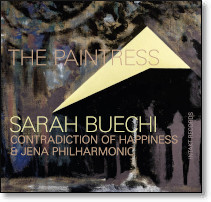 |
 |
 |
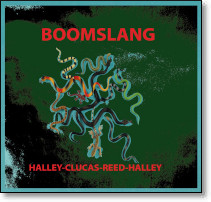 |
 |
 |
 |
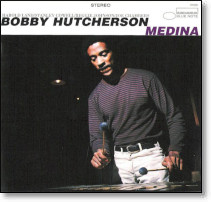 |
Expanded blog post, November archive (in progress).
Tweet: Music Week: 52 albums, 8 A-list, major shift to new music this week, both jazz and non, but I have better eyes and ears for the former (and get some help in the mail); further progress on EOY polls and lists.
Music: Current count 36746 [36694] rated (+52), 130 [128] unrated (+2).
Getting into the end-of-year crunch, so nearly everything this week is in the "new music" list. The exceptions are: a Bobby Hutcherson album that a reader recommended, and a Sonny Clark album that has a new vinyl reissue in Blue Note's Tone Poet series (but I went with the 9-track CD instead of the 6-track LP, so I counted it as old instead of as a new reissue).
Six (of 7) new A-list albums are jazz, although the break in records listened to isn't that skewed. Two of the picks (Carrier and Halley) are perennial favorites, and I tend to like everything they do. Two more are groups (Ill Considered and Irreversible Entanglements) that his fusion seams that I'm easily drawn to. So there was something semi-automatic about those four picks, not involving a lot of thought, especially as I didn't do any comparative listening with old favorites (all have multiple A/A- records in their catalogs). The other two picks were, indeed, surprises (especially Buechi; Gjerstad always seemed like a good, solid contributor, but this is his first headline record I've given an A- to).
It's been harder to identify promising non-jazz, but also I haven't stuck long enough with good records to rate them higher: Idles, Kasai Allstars, and the two Taylor Swift retreads got one play each. and part of the reason I didn't give them a second play was that I already had a track record of stopping at B+(***) for each of them (the last two Idles, two previous Kasai Allstars, and the original Swifts). On the other hand, Dua Saleh overcame my usual anti-EP prejudice with three plays (although I was pretty sure on the first).
The first EOY lists have appeared, from Mojo, Uncut, and Rough Trade -- all British but still not a lot of common ground (and literally zero interest in US hip-hop, or in US pop phenoms like Billie Eilish and Olivia Rodrigo -- although Lana Del Ray, St. Vincent, and the Weather Station got some support). I've started a Metacritic/EOY Aggregate file, but it shows very little at this point. (Also not clear when/if I'll find time to keep it up.) I'm not getting a lot of inspiration from what I've seen so far. After Black Country, Country Road, the next highest unheard record so far was Low's Hey What, a group that has gone from boring to majorly annoying (they ranked 4th both at Mojo and Uncut; Nick Cave's Carnage was 3rd and 5th, but I wasted my time on it some months ago). Still unheard in the current top 100: The War on Drugs, Paul Weller, Courtney Barnett, David Crosby, John Grant. Only one I've looked for is Barnett, but Napster only has 6/10 tracks.
Invites went out on Sunday for the 16th Annual Jazz Critics Poll. I sent 173 invitations out to voters in recent years (we had a record 149 voters last year). Got six ballots so far. Biggest surprise is how many records have already popped up that I wasn't aware of. As I learn more, I'm likely to concentrate on those records this week.
My own EOY lists (in progress): Jazz and Non-Jazz.
Feels like I should be cooking something for Thanksgiving, but I've rarely done so in the past, and thus far no one has showed any interest in me doing so this year. Boo hoo. More time for fucking lists, I guess.
Just finished Adam Serwer's excellent book on the Trump years: The Cruelty Is the Point: The Past, Present, and Future of Trump's America. He seems to be the best of Atlantic's writers (although their paywall has limited my access -- one of the very few gated publications I'm at all tempted by). Much emphasis on racism, not unwarranted but just one of many complaints I have about Trump and the Republicans. Still tempted to sketch out an outline of what I think the right book should be, but it's become increasingly clear I'm never going to get around to writing such a thing. Meanwhile, the country and world goes to hell, because even the people who can conceive of an alternative can't figure out how to implement it. (One of the things Serwer talks about is the gap between ideals and implementation.) Or more succinctly, it's impossible to build anything when people are shooting at you.
I should note that I published answers to a couple of questions last week.
New records reviewed this week:
- Aesop Rock X Blockhead: Garbology (2021, Rhymesayers Entertainment): [r]: B+(**)
- Fatima Al Qadiri: Medieval Femme (2021, Hyperdub): [r]: B-
- Anika: Change (2021, Sacred Bones): [r]: B+(**)
- Badbadnotgood: Talk Memory (2021, XL/Innovative Leisure): [r]: B
- Black Country, New Road: For the First Time (2021, Ninja Tune): [r]: B+(**)
- The Black Keys: Delta Kream (2021, Nonesuch): [r]: B+(**)
- Terence Blanchard: Absence (2021, Blue Note): [r]: B+(**)
- Bridge of Flowers: A Soft Day's Night (2021, ESP-Disk): [cdr]: B+(*)
- Sarah Buechi/Contradiction of Happiness & Jena Philharmonic: The Paintress (2020 [2021], Intakt): [r]: A-
- John Butcher/Dominic Lash/John Russell/Mark Sanders: Discernment (2020 [2021], Spoonhunt): [bc]: B+(*)
- John Butcher/Sharon Gal/David Toop: Until the Night Melts Away (2019 [2021], Shrike): [bc]: B
- François Carrier: Glow (2019 [2021], FMR): [cd]: A-
- Neil Cowley: Hall of Mirrors (2021, Mote): [r]: B+(**)
- Cyclone Trio: The Clear Revolution (2020 [2021], 577): [r]: B+(**)
- Jeremiah Cymerman/Charlie Looker: A Horizon Made of Canvas (2020 [2021], Astral Spirits): [bc]: B+(*)
- Dos Santos: City of Mirrors (2021, International Anthem): [r]: B+(*)
- Ingebrigt Håker Flaten: (Exit) Knarr (2021, Odin): [r]: B+(***)
- Frode Gjerstad/Isach Skeidsvoll: Twenty Fingers (2021, Relative Pitch): [r]: A-
- The Emma Goldman Bust-Out Brigade: The Emma Goldman Bust-Out Brigade (2021, Nomad Eel): [bc]: B+(**)
- Rich Halley/Dan Clucas/Clyde Reed/Carson Halley: Boomslang (2021, Pine Eagle): [cd]: A- [12-03]
- Louis Hayes: Crisis (2021, Savant): [r]: B+(**)
- Natalie Hemby: Pins and Needles (2021, Fantasy): [r]: B+(*)
- Hiss Golden Messenger: Quietly Blowing It (2021, Merge): [r]: B+(*)
- Jon Hopkins: Music for Psychedelic Therapy (2021, Domino): [r]: B
- Idles: Crawler (2021, Partisan): [r]: B+(***)
- Ill Considered: Liminal Space (2021, New Soil): [bc]: A-
- Irreversible Entanglements: Open the Gates (2021, International Anthem): [r]: A-
- Vera Kappeler/Peter Conradin Zumthor: Herd (2020 [2021], Intakt): [r]: B+(*)
- Kasai Allstars: Black Ants Always Fly Together, One Bangle Makes No Sound (2021, Crammed Discs): [r]: B+(***)
- Langhorne Slim: Strawberry Mansion (2021, Dualtone): [r]: B+(**)
- LoneLady: Former Things (2021, Warp): [r]: B+(**)
- Brandon López Trio: Live at Roulette (2021, Relative Pitch): [bc]: B+(**)
- Low: Hey What (2021, Sub Pop): [r]: C
- Francisco Mela Featuring Matthew Shipp and William Parker: Music Frees Our Souls Vol. 1 (2020 [2021], 577): [bc]: B+(***)
- Moor Mother: Black Encyclopedia of the Air (2021, Anti-): [r]: B+(*)
- Van Morrison: Latest Record Project: Volume 1 (2021, BMG/Exile, 2CD): [r]: B
- Willie Nelson: The Willie Nelson Family (2021, Legacy): [r]: B
- Zeena Parkins/Mette Rasmussen/Ryan Sawyer: Glass Triangle (2021, Relative Pitch): [r]: B+(*)
- Nicholas Payton: Smoke Sessions (2021, Smoke Sessions): [r]: B+(**)
- Dua Saleh: Crossover (2021, Against Giants, EP): [r]: A-
- Nala Sinephro: Space 1.8 (2021, Warp): [r]: B+(*)
- Josh Sinton: B. (2021, Form Is Possibility): [cd]: B+(**) [12-10]
- Snotty Nose Rez Kids: Life After (2021, Distorted Muse/Fontana North): [r]: B+(**)
- Space Afrika: Honest Labour (2021, Dais): [r]: B+(*)
- Taylor Swift: Fearless (Taylor's Version) (2021, Republic): [r]: B+(***)
- Taylor Swift: Red (Taylor's Version) (2021, Republic): [r]: B+(***)
- Aki Takase/Daniel Erdmann: Isn't It Romantic? (2020 [2021], BMC): [r]: B+(**)
- Tirzah: Colourgrade (2021, Domino): [r]: B+(*)
- Trees Speak: PostHuman (2021, Soul Jazz): [r]: B+(**)
- Two Much [Reut Regev and Igal Foni]: Never Enough (2021, Relative Pitch): [bc]: B+(***)
- Pabllo Vittar: Batidao Tropical (2021, Sony): [r]: B+(*)
- Summer Walker: Still Over It (2021, LVRN/Interscope): [r]: B+(*)
- Marcin Wasilewski Trio: En Attendant (2019 [2021], ECM): [r]: B+(*)
- Jane Weaver: Flock (2021, Fire): [r]: B+(**)
Recent reissues, compilations, and vault discoveries:
- Mujician: 10 10 10 (2010 [2021], Cuneiform): [dl]: B+(**)
Old music:
- Sonny Clark: My Conception (1957-59 [2000], Blue Note): [r]: B+(***)
- Bobby Hutcherson: Medina (1968-69 [1998], Blue Note): [r]: A-
Unpacking: Found in the mail last week:
- François Carrier: Glow (FMR)
- Amos Gillespie: Unstructured Time (self-released) [02-22]
- Gordon Grdina: Pendulum (Attaboygirl) [10-22]
- Gordon Grdina's Square Peg: Klotski (Attaboygirl) [10-22]
- Samuel Mösching: Ethereal Kinks (Bronzeville Music -18)
- Sara Schoenbeck: Sara Schoenbeck (Pyroclastic) [11-26]
Monday, November 15, 2021
Music Week
 |
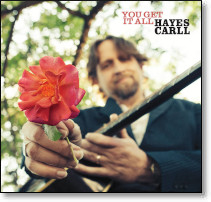 |
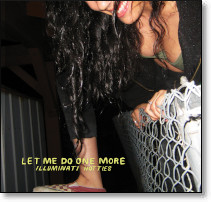 |
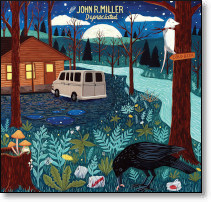 |
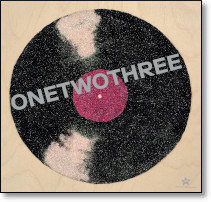 |
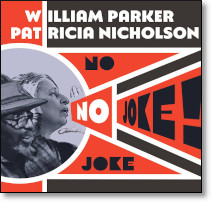 |
 |
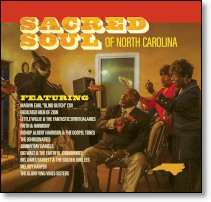 |
 |
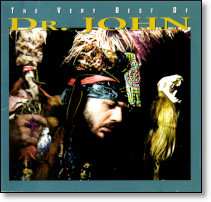 |
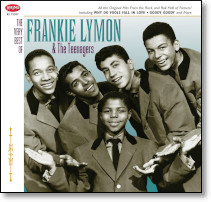 |
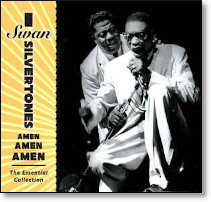 |
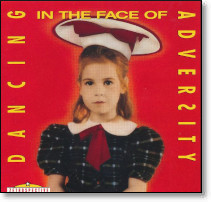 |
Expanded blog post, November archive (in progress).
Tweet: Music Week: 57 albums, 13 A-list, approaching the end of the year, picking up a few odds and ends.
Music: Current count 36694 [36637] rated (+57), 128 [133] unrated (-5).
Long list of records this week. Had one of the best weeks this year for adding new A-list records, mostly thanks to Robert Christgau's Consumer Guide. I even liked the two gospel records, although I've been miserable with the genre lately, especially slogging through the Verity compilations that have been part of my housecleaning chore. Unrated list still dropping, but I ran into a batch this week that I had little stomach for. Also, I'm running out of findable A-list entries in the unheard Christgau list (indeed, three of the Old Music entries below were reviewed from constructed playlists).
Other stuff happening that I can't really get into right now.
PS: One thing I can mention now is that there will be 16th Annual Jazz Critics Poll, with Francis Davis directing and me helping out, as usual. Top results and essays will appear on The Arts Fuse before January 1, and complete results and individual ballots will appear on my Jazz Critics Poll website. (Page is currently primitive, but I'm working on that.) Ballot invites will go out to critics by Monday. If you expect an invite (especially if you've voted in the past) and don't get one, please let us know.
Continuing to add to my Jazz and Non-Jazz EOY files. I've also started to assemble a Metacritic/EOY Aggregate file. Only 3 major lists so far, all British, so don't expect much. At this early stage, points for Christgau's and my grades are a large part of the total, creating a major skew. (Nathan Bell, for instance, is currently ranked 11, but realistically unlikely to finish in the top 300 -- not that he shouldn't be in the top 10, but the world is missing out on a lot of good things these days.) On the other hand, there is only 1 record in top 70 I haven't heard (Low's Hey What). The other thing worth noting is that I spent a lot of time collecting 4-star (and up) ratings from All About Jazz, Downbeat, and Free Jazz Collective, so the jazz skew is probably at an all-time peak. Part, but not all of the reason, Sons of Kemet and Floating Points are in the top three.
Also note that I published a set of Questions & Answers. Worth noting that so did Robert Christgau, who got an unusually meaty batch of questions this month.
Finally (for now), I copied this quote down from Twitter, someone known as @TheBlueMeme:
Our politics suffer from an immune defiency akin to AIDS -- while individuals see the danger, we cannot, as a society, mobilize our defenses against a pathogen that has evolved to capitalize on its weaknesses.
IOW, we're fucked.
Not sure that's exactly right, but it does resonate for those of us who have long been aware of the abyss we seem to be inexorably drawn into. And the conclusion is probably spot on. The acquittal of an Illinois teenager who crossed state lines to murder anti-racism protesters is just one more troubling note. In some sense this is much like the precedent of using drones to kill people abroad, with the same lame justification of self-defense. But it does hit close to home, as the victims this time could just as well have been us. I can't fathom the implications, but it surely undermines the case for gun rights, especially the whole notion that guns are defensive. Effectively they are signs saying "shoot me." Had anyone else shot and killed Rittenhouse, they would have had an equally valid case, for self-defense. (One comment I noted on Facebook: "Rittenhouse is free but it's ok to shoot him.") Unless, that is, the real message is how the case was politicized, and how that was reflected in the obvious prejudices of the judge.
On a lighter note, Ethan Iverson wrote a piece: "What do you give someone to introduce them to modern jazz?" He recommends Kind of Blue, A Love Supreme, and a stack of classic Blue Note albums. I'm not a huge fan of Dexter Gordon's Go (I prefer Our Man in Paris) or Wayne Shorter's Speak No Evil (Night Dreamer is a bit better, but this is where I might go for Tina Brooks' Minor Move, or Jackie McLean's Swing Swang Swingin' (assuming New Soil is a bit too far out for this list).
New records reviewed this week:
- Greg Abate: Magic Dance: The Music of Kenny Barron (2021, Whaling City Sound, 2CD): [r]: B+(**)
- Ada Lea: One Hand on the Steering Wheel the Other Sewing a Garden (2021, Saddle Creek): [r]: B+(**)
- Asleep at the Wheel: Half a Hundred Years (2021, Home): [r]: A-
- Attitude!: Pause & Effect (2019 [2021], ESP-Disk): [cdr]: B+(**)
- Aya: Im Hole (2021, Hyperdub): [r]: B+(**)
- Bktherula: Love Black (2021, Warner): [r]: B+(***)
- Johnathan Blake: Homeward Bound (2021, Blue Note): [r]: B+(***)
- Darrin Bradbury: Talking Dogs & Atomic Bombs (2019, Anti-): [r]: B+(**)
- Darrin Bradbury: Artvertisement (2021, Anti-): [r]: B+(***)
- Hayes Carll: You Get It All (2021, Dualtone): [r]: A-
- Cochemea: Vol. II: Baca Sewa (2021, Daptone): [r]: B+(*)
- The Contraptionists: Working Man's Dread (2021, self-released): [r]: B
- Andrew Cyrille Quartet: The News (2019 [2021], ECM): [r]: B
- Lana Del Rey: Blue Bannisters (2021, Polydor/Interscope): [r]: B+(***)
- David Friesen: Day of Rest (2020 [2021], Origin): [cd]: B+(**) [11-19]
- Scott Hamilton/Duke Robillard: Swingin' Again (2021, Blue Duchess): [r]: B+(*)
- Illuminati Hotties: Let Me Do One More (2021, Snack Shack Tracks/Hopeless): [r]: A-
- Injury Reserve: By the Time I Get to Phoenix (2021, self-released): [r]: B+(*)
- Jason Isbell and the 400 Unit: Georgia Blue (2021, Southeastern): [r]: B
- JPEGMafia: LP! (2021, Republic): [r]: B+(**)
- Darrell Katz & OddSong: Galeanthropology (2019-21 [2021], JCA): [cd]: B+(**) [11-19]
- Doug MacDonald: Serenade to Highland Park (2021, DMAC Music): [cd]: B+(**) [11-16]
- Mereba: Azeb (2021, Interscope, EP): [r]: B+(***)
- John R. Miller: Depreciated (2021, Rounder): [r]: A-
- OneTwoThree: OneTwoThree (2021, Kill Rock Stars): [r]: A-
- Phil Parisot: Inventions (2021, OA2): [cd]: B+(*) [11-19]
- William Parker/Patricia Nicholson: No Joke! (2019-20 [2021], ESP-Disk): [cd]: A-
- Professor Cunningham and His Old School: The Lockdown Blues (2021, Arbors): [r]: B+(*)
- Steph Richards With Joshua White: Zephyr (2019 [2021], Relative Pitch): [r]: B+(**)
- ROVA: The Circumference of Reason (2018-19 [2021], ESP-Disk): [cd]: B+(***)
- Jacob Shulman: Connectedness (2021, Endectomorph Music): [cd]: B+(***) [11-14]
- Snail Mail: Valentine (2021, Matador): [r]: B+(**)
- Tommy Vig: 2022: Jazz Jazz (2021, Klassikus Jazz): [cd]: C
- Dean Wareham: I Have Nothing to Say to the Mayor of L.A. (2021, Double Feature): [r]: B+(**)
- Remi Wolf: You're a Dog (2019, Island, EP): [r]: B+(*)
- Remi Wolf: I'm Allergic to Dogs (2020, Island, EP): [r]: B+(**)
- Remi Wolf: We Love Dogs! (2021, Island): [r]: B+(**)
- Remi Wolf: Juno (2021, Island): [r]: B+(***)
Recent reissues, compilations, and vault discoveries:
- Ben Black: Mystery & Wonder (2007 [2021], Origin): [cd]: B+(**) [11-19]
- Joe Harriott Quintet: Free Form & Abstract Revisited (1960-62 [2021], Ezz-Thetics, 2CD): [bc]: A-
- Calvin Keys: Shawn-Neeq (1971 [2021], Black Jazz/Real Gone Music): [r]: B+(*)
- Jim Knapp Orchestra: It's Not Business, It's Personal (2009 [2021], Origin): [cd]: B+(*) [11-19]
- Harold Land: Westward Bound! (1962-65 [2021], Reel to Real): [r]: B+(**)
- Sacred Soul of North Carolina (2020 [2021], Bible & Tire): [bc]: A-
- Archie Shepp: Blasé and Yasmina Revisited (1969 [2021], Ezz-thetics): [bc]: A-
Old music:
- Dr. John: The Very Best of Dr. John (1968-92 [1995], Rhino): [r]: A-
- Illuminati Hotties: Kiss Yr Frenemies (2018, Tiny Enginse): [r]: B+(**)
- John P. Kee: The Essential John P. Kee (1991-2000 [2007], Verity/Legacy, 2CD): [cd]: B-
- Frankie Lymon & the Teenagers: The Very Best of Frankie Lymon & the Teenagers (1956-60 [2000], Rhino): [r]: A
- John R. Miller: Service Change (2014, 789875 DK): [r]: B+(***)
- John R. Miller & the Engine Lights: The Trouble You Follow (2018, Emperor): [r]: B+(**)
- New Jack City [Music From the Motion Picture] (1991, Giant): [r]: B+(***)
- Eliane Radigue: Adnos I-III (1973-80 [2002], Table of the Elements, 3CD): [cd]: B+(**)
- Sugar and Poison (1971-89 [1996], Virgin, 2CD): [r]: B+(***)
- Swan Silvertones: Amen Amen Amen: The Essential Collection (1952-63 [2015], Rockbeat/Archive Alive): [r]: A-
- Trin-I-Tee 5.7: Holla: The Best of Trin-I-Tee 5.7 (1998-2002 [2007], GospoCentric/Legacy): [cd]: B
- Zetrospective: Dancing in the Face of Adversity (1978-84 [1989], ZE): [r]: A-
- Zetrospective: Hope Springs Eternal (1980-84 [1989], ZE): [r]: B+(**)
Unpacking: Found in the mail last week:
- Attitude!: Pause & Effect (ESP-Disk) [11-19]
- Bridge of Flowers: A Soft Day's Night (ESP-Disk) [10-22]
- Jeff Hamilton Trio: Merry & Bright (Capri) [11-19]
- Jacqueline Kerrod: 17 Days in December (Orenda) [12-03]
- William Parker/Patricia Nicholson: No Joke! (ESP-Disk)
- ROVA: The Circumference of Reason (ESP-Disk)
- Josh Sinton: B. (Form Is Possibility) [12-10]
- Wadada Leo Smith, Jack DeJohnette & Vijay Iyer: A Love Sonnet for Billie Holiday (TUM) [11-19]
- Wadada Leo Smith's Great Lakes Quartet: The Chicago Symphonies (TUM, 4CD) [11-19]
Daily Log
Tweet from @TheBlueMeme:
Our politics suffer from an immune defiency akin to AIDS -- while individuals see the danger, we cannot, as a society, mobilize our defenses against a pathogen that has evolved to capitalize on its weaknesses.
IOW, we're fucked.
Monday, November 08, 2021
Music Week
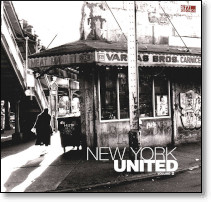 |
 |
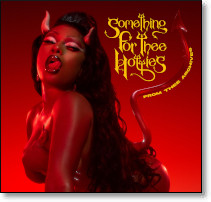 |
 |
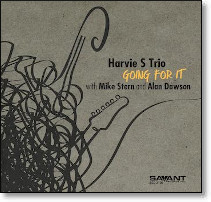 |
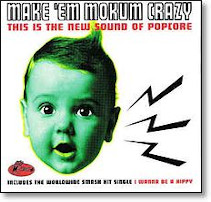 |
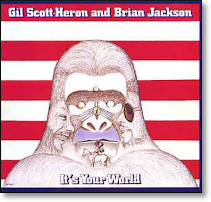 |
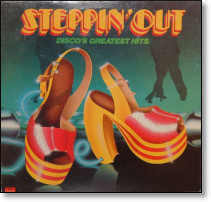 |
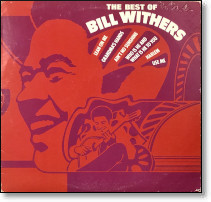 |
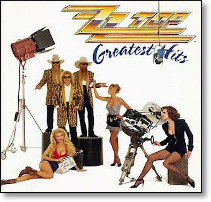 |
Expanded blog post, November archive (in progress).
Tweet: Music Week: 46 albums, 10 A-list, introduction to my EOY lists (first draft, will add more over time), also a bit on the state of the Jazz Critics Poll; still more old music than new, but not by much this time.
Music: Current count 36637 [36591] rated (+46), 133 [145] unrated (-12).
Got up this morning to find that we had no internet, which less importantly also took out the TV and phone line. Major disruption to my usual day, which I compounded by doing some long-procrastinated yard work. Also some grocery shopping, and picked up some food for dinner. Finally up and working now, but late start here. Still haven't read the morning on-line newspaper.
I spent a good deal of time yesterday organizing my 2021 EOY lists for jazz and non-jazz. I've been doing it this was since 2013, figuring that since I started writing Jazz Consumer Guide in 2005 half or more of the records I listen to each year are jazz, and I follow different rules and heuristics in deciding what to listen to in jazz and non-jazz. In particular, I still receive a fair (albeit declining) number of jazz promos, which I almost always listen to -- even those that wouldn't have caught my attention otherwise. I'm pickier when it comes to non-jazz, favoring genres I've tended to enjoy, avoiding ones I've rarely cared for. I usually wind up checking out 95% of the top 100 EOY albums, 80% of the top 200, with numbers falling of considerably from there.
First key statistic is that the initial draft of the files shows 509 jazz and 276 non-jazz albums (i.e., 65% jazz). I expected the number of records to drop this year. Early on, I decided not to try to keep a running metacritic album list this year, so I've spent a lot less time following reviews (especially non-jazz), and as such have much less idea of what is out and what other people are liking. Also, I've been searching out a lot of old music -- my rated totals are actually up this year (1960 vs. 1726 for the first 10 months in 2020, so up 13.5%), but new records are down (785 vs. 982 when I initially compiled the EOY files in 2020, so down 20.1%). I'm still undecided on doing an EOY aggregate this year. If I do so, I'm likely to make up more ground than if I don't. At any rate, the years of me doing 1200-1500 records per year are probably done.
The statistic I was surprised by this year is that both my jazz and non-jazz lists show 38 A/A- albums each. That's about half the number I wind up with most years (2020 wound up with 86 jazz, 76 non-jazz, although the more relevant stat was the initial draft number: 54 jazz, 43 non-jazz). That points to the second statistical anomaly this year. As far as I can recall, the EOY lists always started with significantly more jazz A-list than non-jazz (2020 was closer than usual). As you can see, the domain split is almost 2-to-1 in favor of jazz, so I've been paying lots of attention to new jazz releases. Indeed, the archival split of 22 jazz/5 non-jazz is way above any past norms. I don't know why, but it's been a very active year for jazz reissues/archival music, and those releases have been more accessible this year than has been the case for many years.
One more thing I'll note is that (working from memory) only 14 of my top 38 non-jazz albums have been graded A/A- by Robert Christgau; 3 have lower Christgau grades (as does Sons of Kemet on my jazz list); the other 21 haven't been reviewed/graded by Christgau. Of the 14, I got to 8 first (although Billie Eilish was a close call; I reviewed Dry Cleaning earlier, but only raised my grade to A- after Christgau's review). (Actually, four more Christgau A-list albums made other parts of my list: three in Non-Jazz Reissues/Historic Music [out of 5, so 60%], and Body Meπa on the Jazz list -- all albums I only heard about through him.) At least 9 more Christgau A-list albums appear lower down my Non-Jazz List, with Tune-Yards at the bottom (B).
As always, I will update the lists as I listen to new music. Note that order isn't at all well established. I try to keep the A-list in some sort of rank order, but my usual method isn't very reliable, so when I finally look at the whole list I wind up doing a log of juggling. I did some of that while I was putting this together, and expect to do more, especially as I re-listen to select items. Also, one thing I haven't worked on yet is to fill in the unheard prospects at the bottom of the files ("estimated to have a 2% or better chance of making the A-list if/when I finally hear them"). I'll add to that list as I look at other lists (and my own tracking file), and then tick them off as I listen to some of them.
I hear that NPR is dropping its support for Jazz Critics Poll this year. I'm inclined to run the poll anyway, posting the results on my Hullworks website (as I've done for many years; that way we provide complete ballot accountability without encumbering the sponsor, who's usually only interested in the winners). Waiting to hear what Francis Davis thinks of my proposal, and what (if any) contribution he'd like to make. It's been his forum since its inception back when we were both writing for Village Voice, so what he thinks carries a lot of weight. Last year, ballot invites went out on November 20, with a deadline of December 13. The idea was for NPR to post the results first week of January, although last year they weren't posted until January 14.
The downside to not having a sponsor is that we won't get paid, even the modest sums we're used to. At this point, that's not a big concern, for me at least. I have a system for collating and counting the ballots, and it's reliable and pretty easy to work, so that part is straightforward. I'd like to set up a package with the results and whatever writing we can come up with, and see if we can nudge it out so it spreads virally around the Internet, increasing its visibility and interest in new jazz. I'd appreciate any suggestions on how to do that. Also tips on people we should invite but haven't.
New records reviewed this week:
- Borderlands Trio [Stephan Crump/Kris Davis/Eric McPherson]: Wandersphere (2021, Intakt, 2CD): [r]: B+(***)
- Daniel Carter/Tobias Wilner/Djibril Toure/Federick Ughi: New York United, Volume 2 (2018 [2021], 577): [bc]: A-
- Claudia Quintet: Evidence-Based (2021, Flexatonic): [bc]: A-
- Gerald Cleaver: Griots (2020 [2021], Positive Elevation/577): [bc]: B+(**)
- The Cookers: Look Out! (2021, Gearbox): [r]: B+(*)
- Elvis Costello & the Attractions: Spanish Model (2021, UMe): [r]: B+(**)
- Sylvie Courvoisier/Mary Halvorson: Searching for the Disappeared Hour (2021, Pyroclastic): [cd]: B+(***)
- Daggerboard: Last Days of Studio A (2018-19 [2021], Wide Hive): [cd]: B+(*)
- Fred Frith Trio With Lotte Anker/Susana Santos Silva: Road (2021, Intakt, 2CD): [r]: B+(***)
- Futari: Underground (2018-21 [2021], Libra): [cd]: B+(**) [11-19]
- Wanda Jackson: Encore (2021, Big Machine, EP): [r]: B+(*)
- Irene Jalenti: Dawn (2020 [2021], Antidote Sounds): [cd]: B+(**)
- Remy Le Boeuf's Assembly of Shadows: Architecture of Storms (2019-21 [2021], SoundSpore): [cd]: B
- Megan Thee Stallion: Something for Thee Hotties: From Thee Archives (2019-21 [2021], 300 Entertainment): [r]: A-
- Allison Miller/Jane Ira Bloom: Tues Days (2021, Outline): [bc]: B+(***)
- Cameron Mizell & Charlie Rauh: Local Folklore (2020-21 [2021], Destiny): [cd]: B
- Parquet Courts: Sympathy for Life (2021, Rough Trade): [r]: B+(***)
- Self Esteem: Prioritise Pleasure (2021, Fiction): [r]: B+(**)
- Matthew Shipp: Codebreaker (2020 [2021], Tao Forms): [cd]: A-
- This Is It!: Mosaic (2021, Libra): [cd]: B+(***) [11-19]
- Mareike Wiening: Future Memories (2020 [2021], Greenleaf Music): [cd]: B+(*) [11-12]
Recent reissues, compilations, and vault discoveries:
- Laurence Cook/Jacques Coursil/Warren Gale/Perry Robinson/Steve Tintweiss: Ave B Free Jam (1967 [2021], Inky Dot): [cd]: B [11-30]
- Harvie S Trio: Going for It (1985 [2021], Savant): [r]: A-
Old music:
- Glen Campbell: The Legacy (1961-2002) (1961-2002 [2003], Capitol, 4CD): [cdr]: C
- Sylvie Courvoisier/Mary Halvorson: Crop Circles (2016 [2017], Relative Pitch): [bc]: B+(***)
- Bing Crosby: Bing! His Legendary Years, 1931 to 1957 (1931-57 [1993], MCA, 4CD): [cd]: B+(***)
- A Good Year [Music From the Motion Picture] ([2006], Legacy/Sony Music Soundtrack): [cd]: B
- Heart of the Forest: The Music of the Baka Forest People of Southeast Cameroon (1993, Hannibal): [r]: B+(***)
- Make 'Em Mokum Crazy: This is the New Sound of Popcore (1995-96 [1996], Mokum): [yt]: A-
- Donnie McClurkin: The Essential Donnie McClurkin (2000-05 [2007], Verity/Legacy, 2CD): [cd]: B-
- Notekillers: Airports + Ants (2006, Notekillers, EP): [cd]: B+(*)
- Putumayo Present: Christmas Around the World (1990-2002 [2003], Putumayo World Music): [cd]: C+
- Juan Carlos Quintero: Joy to the World (2007, Tenure): [cd]: B-
- Rhythm Love and Soul Live (2002 [2003], Shout! Factory): [cd]: B+(**)
- Kevin Roth: Between the Notes (2006, Star Gazer): [cd]: B
- The Rubinoos: The Rubinoos (1977, Beserkley): [r]: B+(*)
- Gil Scott-Heron and Brian Jackson: It's Your World (1976, Arista): [yt]: A-
- Snapback: Purgatory (2006, "Insert Your Major Label Name Here" Music): [cd]: B+(**)
- Steppin' Out: Disco's Greatest Hits (1970-78 [1978], Polydor): [yt]: A-
- Luther Vandross: The Best of Luther Vandross: The Best of Love (1980-89 [1989], Epic, 2CD): [r]: B+(***)
- The Very Best of Praise & Worship Volume 2 (1996-2006 [2007], Verity/Legacy): [cd]: B-
- Andreas Vollenweider: Midnight Clear (2006, SLG}: [cd]: B-
- Hezekiah Walker: The Essential Hezekiah Walker (1992-2005 [2007], Verity/Legacy, 2CD): [cd]: C
- Wide Right: Wide Right (2002, Wide Right, EP): [r]: B+(***)
- Jesse Winchester: Jesse Winchester (1970, Ampex): [r]: B+(***)
- Bill Withers: The Best of Bill Withers (1971-74 [1975], Sussex): [r]: A-
- ZZ Top: Greatest Hits (1979-90 [1992], Warner Brothers): [r]: A-
Unpacking: Found in the mail last week:
- Ben Black: Mystery & Wonder (Origin) [11-19]
- Daggerboard: Last Days of Studio A (2021, Wide Hive) [10-15]
- David Friesen: Day of Rest (Origin) [11-19]
- Futari: Underground (Libra) [11-19]
- Rich Halley/Dan Clucas/Clyde Reed/Carson Halley: Boomslang (Pine Eagle) [12-03]
- Darrell Katz & OddSong: Galeanthropology (JCA) [11-19]
- Jim Knapp Orchestra: It's Not Business, It's Personal (Origin) [11-19]
- Mick Kolassa: Uncle Mick's Christmas Album (Endless Blues) [10-15]
- Phil Parisot: Inventions (OA2) [11-19]
- This Is It!: Mosaic (Libra) [11-19]
- Uptown Vocal Jazz Quartet: Fools for Yule (Housekat) [11-01]
- Tommy Vig: 2022: Jazz Jazz (Klassikus Jazz) [11-03]
Friday, November 05, 2021
Daily Log
Tweet based on article in Wichita Eagle:
Headline: "Thousands of intel officers refusing vaccine risk dismissal." Doesn't vaccine refusal prove that said "intel officers" are unfit for intelligence agency work? One of many areas where vaccine mandates could help weed out undesirable workers.
I've seen similar articles (and comments) with regard to police.
Thursday, November 04, 2021
Rapid Response
I've made next to no effort to read post-mortem analysis of Tuesday's elections, and don't see any reason to start now. What I was hoping for was that Democrats would hold on to New Jersey and Virginia governorships and legislatures, and maybe pick up a contested congressional seat in Ohio (where Republicans have been overperforming ever since they put those new voting machines in for the 2004 election). Had that happened, it would basically say that even if voters are dissatisfied with Democrats they at least recognize that they'd be much worse off with Republicans. As you know, that didn't happen, although the NJ governorship was held by Democrat Philip Murphy (in something of a nail-biter). The lesson I draw from all of this is that Democrats need to communicate and campaign better. In particular, they need to drive home the point that there is no effective difference between Trump and any other Republican on any ticket anywhere.
No More Mister Nice Blog has written several good posts on just this theme. In particular, see Democrats Need to Develop Rapid Response 2.0. He starts off quoting Greg Sargent on a "lopsided communications imbalance" by which "Youngkin and his allies have pumped . . . raw right-wing sewage directly into the minds of the GOP base, behind the backs of moderate swing voters, via a right-wing media network that has no rival on the Democratic side." Blogger SM notes:
What Democrats need to do is disrupt the messaging of the right. They need a sense of what's being said in the right's propaganda channels and they need to respond to it fast, before the messaging reaches voters in the middle. They need to debunk dishonest allegations and they need to make the dishonesty the story.
The 1992 Bill Clinton campaign was known for a "rapid response" capability that didn't allow bad news to fester. Democrats need to recognize that Fox News is the Republican Party, and that they need to treat messaging on Fox as if it's messaging from Republican campaigns. (Because it is.) They need to see propaganda campaigns like this coming and they need to counter such campaigns as fast as they can.
The facile explanation for Democratic losses is Biden's recent drop in the favorability polls, which crossed negative around August 27. That slide started with the fall of Kabul, which had become inevitable at least since Obama's "surge" failed to gain any traction in 2009-10, or for many of us since Fall 2001, when GW Bush responded to Osama Bin Laden's dare and blundered into the "graveyard of empires." I gave Biden much credit for sticking to his withdrawal schedule, and thought he defended the decision ably (if not as eloquently as one might wish for). But who in the public eye had his back? Republicans enjoyed a purely opportunistic feast of demagoguery at Biden's expense. Since then the right-wing talk machine has been harping on things like gasoline prices, while the media has been focused on the efforts of two marginal senators to sabotage an important (and if people properly understood it better a potentially very popular) piece of legislation, making Democrats look hapless.
While it may be difficult to get an airing in the fracas-oriented mainstream media, it really shouldn't be hard for sensible people to make meaningful comparisons Democrats, who are honestly proposing real solutions to critical problems, and Republicans, who offer nothing but complaints and paeans to magical thinking. Even more so between Biden and his Republican predecessor. Last week's trip to Europe for G20 and COP26 should have been seen as a triumph of statesmanship, in stark contrast to the amateur hour histrionics of Trump's foreign meetings. The G20 agreement to pursue minimum global taxation of corporations, for instance, wasn't even on the agenda as long as Trump was president. The pledges on deforestation may not amount to much, but can you even imagine Trump caring a whit?
Trump is so ridiculous and vile he's like a prophylactic around the mass of the Republican Party (at least those who haven't made public spectacles of themselves, like Louie Gohmert, Matt Goetz, Marjory Taylor Greene, and Ted Cruz), protecting their reputations from his stain. But for all practical purposes, there is very little difference Trump and the average Republican conservative in Congress. SM has a post on this: The Number of Bad Republicans Is Much Greater Than One. His first piece of evidence is a Twitter thread from Diana Butler Bass (links in post) about "Bad stuff that happened in Virginia the last time we had a GOP governor" (each of these is backed by links to articles):
- Remember the Virginia ultrasound bill forcing vaginal probes controversy?
- UVA professors were investigated for teaching climate science.
- Gov Bob McConnell reinstated Confederate History Month.
- The GOP worked to subvert every environmental policy in the books.
- The 2013 candidate for Lt Gov ran a campaign based on Democrats being the Antichrist.
SM concludes:
But this is my ongoing complaint about the Democrats: They're up against a party of extremists whom much of the country regards as moderate, while Democrats are a mostly moderate party that's regarded by far too many voters as extreme. Regarding the latter, Democrats like Joe Biden and Kyrsten Sinema, in different ways, send the message, "I'm moderate -- I'm not like those Democrats you don't like," which got them elected but reinforces the Democrats-as-extremists stereotype. And when Democrats focus on Trump as a uniquely evil figure, that reinforces the belief that most Republicans are fine, decent, responsible right-centrists.
Still, what bothers me isn't that the Republicans have become the real extremists, but that the ideas that motivate their extremism are so dysfunctional. In simpler times I might offer you a list here, but now it would take a book. They have no idea how the economy works. They have no concern for what unfettered business does to the environment, let alone the climate. They hold all but the rich in contempt, yet are convinced their attitudes will never provoke redress. After all, they figure they got all the guns. Every time you give them a piece of power, they cost us valuable time and often exacerbate the problems.
Still, as disasters go, Tuesday's elections didn't do a huge amount of damage. They are a wake up call for Democrats, a warning that we need to work smarter and help each other out more, and take seriously the need to explain to people why we offer hope for the future, and why Republicans don't. And by the way, the elections did bring some victories. Here in Wichita, three progressives were elected to the city council (a net gain of two). On the other hand, the school board took a step backward, as Republicans organized a partisan slate in a nominally non-partisan election and flipped three (of four) seats, one thanks to a split among better candidates. That promises to be the end of Critical Race Theory in the Wichita Public Schools (not that there was any), but also the end of mask mandates.
Monday, November 01, 2021
Music Week
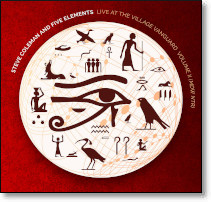 |
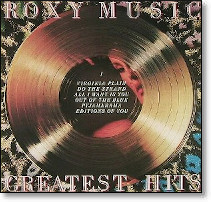 |
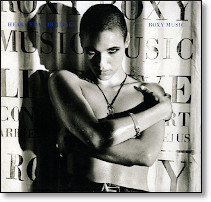 |
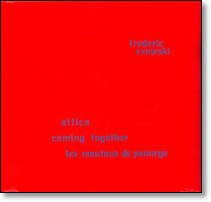 |
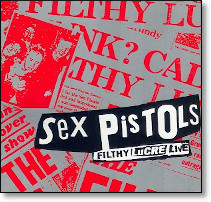 |
 |
 |
 |
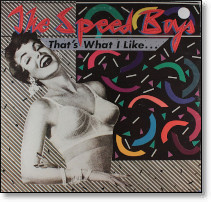 |
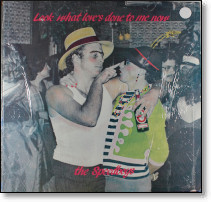 |
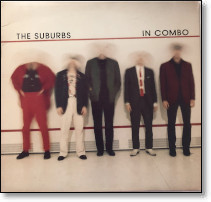 |
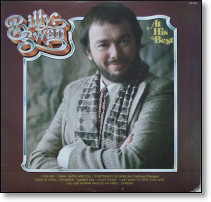 |
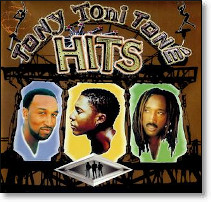 |
 |
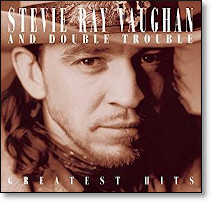 |
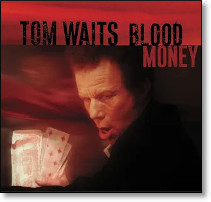 |
Expanded blog post, November archive (in progress).
Tweet: Music Week: 57 albums, 16 A-list, taking it easy by listening to well-regarded oldies, coming up with a remarkably diverse list; also notes on blogging, fiction, Covid, and tomorrow's elections.
Music: Current count 36591 [36534] rated (+57), 145 [149] unrated (-4).
After last week's birthday dinner, friends advised me to take it easy. Easiest thing for me to do was to continue down my unheard Christgau-rated list. Having passed 'z' and moving into various artists compilations, I was a bit surprised to find a mis-sorted block of artist albums starting with Plastic People of the Universe, although I didn't find streamable copies of any A-list albums until I got down to Smokey Robinson. I also worked a few of my unrated albums in, although I slowed down when I hit a pile of Verity gospel compilations (blame Fred Hammond). Most of the few other records came from Facebook tips (e.g., Disco Tex was Chuck Eddy's first pick in 150 Best Albums of 1975). Sorry I'm not as impressed with O.V. Wright as Cliff Ocheltree is.
Actually, I've known about the sort bug for a long time, but when I've looked at it, the only things I could find were data errors that produce inconsistent qsort() comparisons. This results in locally sorted blocks (themselves sorted properly) being thrown out of order. I just found and fixed one such error, and now it looks like all.tbl is fully sorted. Still doesn't fix the subset I previously extracted for the Christgau grade list, but does feel a lot tidier.
Late in the week, I turned to the Ezz-Thetics Bandcamp for something under the "recent reissues, compilations, and vault discoveries," and accidentally found they had slipped a new release into the catalogue. Finally, I thought I should have something new and recent from the demo queue. Glad I went for the Steve Coleman. Only after I had the review mostly written did I discover that there were two discs -- I had been listening to the second, which I still slightly prefer, but both are delightful. Could well be a ballot pick.
I finally did the indexing on October Streamnotes, which came out to 218 albums, pushing the Streamnotes total to 18011 albums (although that's included real CDs, and a handful of LPs, since 2014; still, we're approaching the point where half of my rated records have been streamed).
My daily routine is to get up whenever seems appropriate, take a bunch of pills, get a bowl of yogurt for breakfast, put some music on, and settle down in front of the computer, scanning through the Wichita Eagle on-line. Used to be thumbing through the paper news, but digital has introduced some subtle changes in my reading habits. For one thing, I see and read a bit more. I see more because I wind up forwarding through every page, instead of skipping whole sections. Mostly I see more sports, which makes up about a third of the whole paper. I find myself actually following NBA basketball, which is the only sport I still have any feel for. Occasionally I stop on an auto racing story. And I have to admit, I've picked up a bit of baseball for the first time in 25 years. I still don't recognize any of the players, but I'm beginning to know a bit about teams.
I find myself reading more news articles, superficial as they so often are. Occasionally I feel like commenting on something, but the logistics are inconvenient. Updating my blog is also inconvenient, which is probably why I've tended to group comments into weekly posts, like Music Week or Speaking of Which (which I haven't been doing much of lately). I've thought about using Twitter to forward the occasional article link (as I did yesterday), but it's hard to make a point (let alone several) in 280 characters. Besides, Twitter is such a fleeting forum (and Facebook is even more limited). Then I remembered that I already have a domain name, Notes on Everyday Life, with a WordPress blog set up but unused. I've used that domain for a couple of since-crashed websites. So I resurrected it yesterday, had trouble finding my original About page, so I wrote another, then a new post on VA health care and how the Republicans have a weird knack for creating crises and the fobbing off blame for them on Democrats. I had previously tweeted about a Washington Monthly article that I wanted to expand on.
I updated the WordPress site software, and am still finding a lot of things about it confusing (like why it doesn't include the author name with the article, except on rare occasions, or how I get rid of that "Proudly powered by WordPress" footer). So working on that.
Finished reading Kim Stanley Robinson's novel The Ministry for the Future, but haven't finished my commentary on an article he wrote about the book, something I started working on before I got to the book. Meanwhile, I've started a second novel, called We, the House, by Warren Ashworth and Susan Kander. My wife is an editor for a local publishing house, Blue Cedar Press, founded by a couple of local friends (guests at my birthday party, by the way), and they were offered the novel because it's about an old house in nearby Newton, Kansas. It has two major characters: one is a painted portrait of a Mrs. Peale that hangs in the dining room and can observe the people inside the house, and the other is the house itself (pronoun we), which can only report the view outside the house. My wife loves the book, and I've been hearing her praise it for several months now. And while I'm not much of a fiction reader, I do have a thing for houses.
Just happened to take a look at the Covid map today, and what I'm seeing looks rather alarming: not just the slight uptick in the last week (since Oct. 25), reversing a downward trend since the second peak on Sept. 13, but the county map looks a lot like a map of fall colors, with Alaska the worst, a stretch from Maine down the Appalachians to West Virginia, the Great Lakes from Michigan to Minnesota, and the High Plains and Rocky Mountains stretching into the Sierra Nevada nearly all high. This is a big shift from September, when the correlation was strongest with dipshit Republican governors. Flus have always peaked in Winter, as Covid did last year. Looks like we're not out of the woods yet, although you can thank your vaccinated friends and neighbors if this year isn't as bad as last. And if you ban the unvaccinated from your Thanksgiving feasts, you'll come out ahead two ways.
Many elections tomorrow. Hopefully we'll get a city council rep (Michelle Ballard) who's not in the pockets of the developer lobby. The only election that's likely to be read as a barometer on Biden (at least vs. Trump) is Virginia governor. I can understand lamenting the inability of Democrats to deliver on campaign promises, but that's no reason to vote Republican. All they have to offer is spite and stupidity. Democrat Terry McAulliffe is pretty uninspiring, but do voters really want to choose nothing (and no hope) over something?
Actually, I continue to be impressed by Biden's ability to shift the Overton Window (the domain of issues being seriously discussed). For instance, see: G20 Leaders Endorse Plan to Block Corporations From Sheltering Profits. This is something literally no one in power was talking about when Trump was president. The G20 pledges on climate change may be lame, but they would have been pointless with Trump still in charge. Sens. Manchin and Sinema may succeed in scuttling much of Biden's Build Back Better bill, but they're looking desperate and obtuse in doing so.
New records reviewed this week:
- Steve Coleman and Five Elements: Live at the Village Vanguard Volume II (MDW NTR) (2018 [2021], Pi, 2CD): [cd]: A-
- Nick Fraser Quartet: If There Were No Opposites (2019 [2021], Ezz-Thetics): [bc]: B+(*)
- Lady Gaga: Dawn of Chromatica (2021, Interscope): [r]: B+(*)
- Lainey Wilson: Sayin' What I'm Thinkin' (2021, Broken Bow): [r]: B+(***)
Recent reissues, compilations, and vault discoveries:
- Jimmy Giuffre 3: Graz Live 1961 (1961 [2019], Ezz-Thetics): [bc]: B+(***)
Old music:
- Be Kind Rewind [Original Motion Picture Soundtrack] (2007 [2008], Lakeshore): [cdr]: B
- Between the Covers (1989-2005 [2006], Legacy): [cd]: B
- Tony Conrad: Thunderboy! (1971-73 [2002], Table of the Elements): [cd]: B-
- Disco Tex & the Sex-O-Lettes: Disco Tex & the Sex-O-Lettes (1975, Chelsea): [r]: B+(**)
- Arnold Dreyblatt: The Sound of One String (1979-91 [1998], Table of the Elements): [cd]: B+(***)
- Fred Hammond: The Essential Fred Hammond (1991-2004 [2007], Verity/Legacy, 2CD): [cd]: C+
- The Orioles: For Collectors Only (1948-57 [1992], Collectables, 3CD): [cd]: B+(*)
- The Orioles: Sing Their Greatest Hits (1948-54 [1991], Collectables): [r]: B+(**)
- Smokey Robinson: Where There's Smoke . . . (1979, Tamla): [r]: B+(***)
- Tom Robinson: North by Northwest (1982, IRS): [r]: B+(*)
- Roxy Music: Greatest Hits (1972-75 [1977], Atco): [r]: A
- Roxy Music: The High Road (1982 [1983], Warner Brothers, EP): [yt]: B+(***)
- Roxy Music: Heart Still Beating (1982 [1990], Reprise): [r]: A-
- Frederic Rzewski: Coming Together/Attica/Les Moutons De Panurge (1973 [1974], Opus One): [yt]: A-
- Sarge: Distant (2000, Mud): [r]: B+(**)
- The Selecter: Too Much Pressure (1980, Chrysalis): [r]: B+(***)
- The Sex Pistols: Filthy Lucre Live (1996, Virgin): [r]: A-
- Shalamar: Three for Love (1980, Solar): [r]: B+(***)
- Shalamar: Go for It (1981, Solar): [r]: B+(***)
- Shalamar: Greatest Hits (1978-81 [1982], Solar): [r]: A-
- Shoes: Present Tense (1979, Elektra): [r]: B+(***)
- Shoes: Tongue Twister (1981, Elektra): [r]: A-
- Shop Assistants: Shop Assistants (1986, Blue Guitar): [r]: B+(**)
- Shop Assistants: Will Anything Happen (1986 [2008], Cherry Red): [r]: B+(**)
- Silkworm: Lifestyle (2000, Touch & Go): [r]: A-
- The Silos: About Her Steps (1985, Record Collect): [r]: B+(***)
- Silos: Cuba (1987, Record Collect): [r]: B+(**)
- Slade: Slayed? (1972, Polydor): [r]: B+(**)
- Slave: Show Time (1981, Cotillion): [r]: B+(*)
- Phoebe Snow: The Best of Phoebe Snow (1974-78 [1982], Columbia): [r]: B+(**)
- The Specials: Ghost Town/Why?/Friday Night Saturday Morning (1981, Chrysalis, EP): [r]: B+(***)
- The Speed Boys: That's What I Like (1982, I Like Mike): [r]: A-
- The Speedboys: Look What Love's Done to Me Now (1983, I Like Mike): [r]: A-
- The Strokes: The Modern Age (2001, Rough Trade, EP): [r]: B+(***)
- The Strokes: First Impressions of Earth (2005 [2006], RCA): [r]: B+(*)
- The Suburbs: In Combo (1980, Twin/Tone): [r]: A-
- Billy Swan: I Can Help (1974, Monument): [r]: B+(**)
- Billy Swan: Billy Swan (1976, Monument): [r]: B+(***)
- Billy Swan: At His Best (1974-76 [1978], Monument): [r]: A-
- Billy Swan: Like Elvis Used to DoB+(**)
- Billy Swan and Buzz Cason: Billy and Buzz Sing Buddy (2018, Arena): [r]: B+(*)
- Tavares: The Best of Tavares (1974-76 [1977], Capitol): [r]: B+(**)
- The Thermals: The Bodyo, the Blood, the Machine (2006, Sub Pop): [r]: B+(**)
- Thomas Jefferson Slave Apartments: Straight to Video (1997, Anyway): [r]: B+(***)
- Thomas Jefferson Slave Apartments: No Old Guy Lo-Fi Cry (2000, Rockathon): [r]: B+(***)
- Sally Timms: Cowboy Sally (1997, Bloodshot, EP): [r]: B+(**)
- Sally Timms & Jon Langford: Songs of False Hope and High Values (2000, Bloodshot, EP): [r]: B+(**)
- Sally Timms: In the World of Him (2004, Touch & Go): [r]: B+(*)
- Tokyo Police Club: A Lesson in Crime (2006, Paper Bag, EP): [r]: B+(***)
- Tony Toni Toné: Hits (1988-97 [1997], Mercury): [r]: A-
- Pete Townshend: Who Came First (1972, Track): [r]: B+(*)
- Trouble Funk: Drop the Bomb (1982, Sugar Hill): [yt]:
- Trouble Funk: Trouble Over Here/Trouble Over There (1987, Island): [r]: B+(**)
- Stevie Ray Vaughan and Double Trouble: Live Alive (1985-86 [1986], Epic): [r]: B+(**)
- Stevie Ray Vaughan and Double Trouble: Greatest Hits (1983-90 [1995], Epic): [r]: A-
- Tom Waits: Blood Money (2002, Anti-): [r]: A-
- Tom Waits: The Black Rider (1993, Island): [r]: B+(***)
- O.V. Wright: The Soul of O.V. Wright (1964-73 [1992], MCA): [r]: B+(**)
Unpacking: Found in the mail last week:
- Laurence Cook/Jacques Coursil/Warren Gale/Perry Robinson/Steve Tintweiss: Ave B Free Jam (1967, Inky Dot) [11-30]
- Doug MacDonald: Serenade to Highland Park (DMAC Music) [11-16]
- Sara Serpa: Intimate Strangers (Biophilia) [12-01]
- Dave Stryker: As We Are (Strikezone) [2022-01-07]
 |
Oct 2021 |